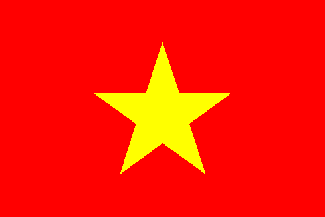This is the story of a friendship, a friendship that
begins in 1987 when the narrator, a young man who wants to become a novelist,
travels to a university in the American Mid-west and meets Rodney Falk, with
whom he will share an office. He is a
Vietnam War veteran, unsociable and unapproachable, fiercely bright and
secretly corroded by his past. This is
also the story of a radical experience in the undecipherable abysm of wrong and
guilt that the narrator will only come to understand and assume years later,
when he achieves success and learns that it has a snaring side of
corruption. By then, the imprecise
figure of Rodney and his devastating story will have imposed themselves with
great force as an emblem of his own story, and perhaps of the human condition
as well.
La velocidad de la luz is
written with an apparent transparency and a plot that will not give the reader
a rest. It explores our unlimited
capacity to do harm, the infinite stupidity of war and the infinite stupidity
of success, but above all, it explores the definitive power that literature
possesses to confront reality and to exorcize its demons. It is a radical novel, necessary and
unprecedented. It is both a
recapitulation and a new turn of the screw to one of the most personal and fascinating
narrative universes in current Spanish literature.
RIGHTS SOLD TO
 France - Editorial Actes Sud
France - Editorial Actes Sud United Kingdom - Editorial Bloomsbury
United Kingdom - Editorial Bloomsbury Netherlands - Editorial De Geus
Netherlands - Editorial De Geus Portugal - Editorial Ediçoes ASA
Portugal - Editorial Ediçoes ASA Greece - Editorial Patakis
Greece - Editorial Patakis Italy - Editorial Ugo Guanda
Italy - Editorial Ugo Guanda United States - Editorial Bloomsbury
United States - Editorial Bloomsbury Sweden - Editorial Bazar Forlag
Sweden - Editorial Bazar Forlag Denmark - Editorial Bazar Forlag
Denmark - Editorial Bazar Forlag Norway - Editorial Bazar Forlag
Norway - Editorial Bazar Forlag Finland - Editorial Bazar Forlag
Finland - Editorial Bazar Forlag Brazil - Editorial Editora Relume Dumará
Brazil - Editorial Editora Relume Dumará Israel - Editorial Carmel Publishers
Israel - Editorial Carmel Publishers Poland - Editorial WAB
Poland - Editorial WAB Rumania - Editorial Editura Corint
Rumania - Editorial Editura Corint Croatia - Editorial Fraktura
Croatia - Editorial Fraktura Vietnam - Editorial The Gioi Publishers
Vietnam - Editorial The Gioi Publishers